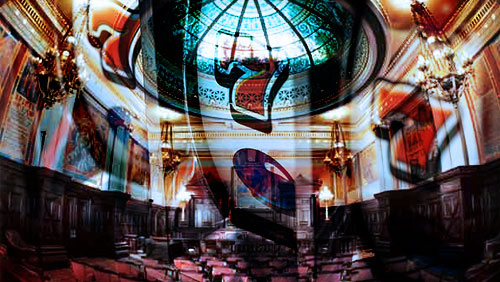Pennsylvania is putting $50 million on the line after the state Supreme Court declared the local slots tax illegal.
 Philly.com reported that the Supreme Court (SC) has given the general assembly to fix the 2004 law that legalized casinos in the Keystone State and paved the way for the state to impose different rates on casinos depending on their size.
Philly.com reported that the Supreme Court (SC) has given the general assembly to fix the 2004 law that legalized casinos in the Keystone State and paved the way for the state to impose different rates on casinos depending on their size.
The ruling, which declared that the municipal portion of tax on slot machines outside Philadelphia violates the state constitution, has dealt a heavy blow to the cash-strapped state that is now desperate for revenue. It is estimated that the state will be staking nearly $50 million.
It also comes as Pennsylvania mulls on introducing video-gaming terminals in bars and online gaming.
“We are taking the time to review the details of the decision, the consequences of which could be far reaching,” said Jennifer Kocher, spokeswoman for Senate Majority Leader Jake Corman (R., Centre). “We are working to determine what those impacts will be. We will be considering our next steps, if any, in the coming weeks.”
The case stemmed from a petition of Mount Airy Casino Resort in the Poconos, which argued that the state’s tax on slot-machine revenue earmarked for the casino’s host municipality is illegal since the
Pennsylvania Constitution requires all taxes to be applied uniformly on the same class, in this case casinos.
Mount Airy pointed out that most casinos outside Philadelphia needs to pay a minimum $10 million tax to their host municipalities while SugarHouse casino inside Philadelphia is exempted. According to the Pennsylvania Gaming Control Board annual report, the difference cost nine Pennsylvania casinos a total of $48.5 million in the year ended June 30.
The casino operator believes that the casino class division – those with more than $500 million in annual slots revenue and those with less created by the gaming law mandated different tax structures for them.
In essence, larger casino will pay 2 percent of its slots revenue in a local municipal tax while small casino sees a higher effective rate with a $10 million minimum. This is the argument the Supreme Court based its decision on, though no Pennsylvania casino has ever topped $500 million in annual slots revenue.
“It’s fraught with peril,” Thomas Leonard, chairman of Obermayer Rebmann Maxwell & Hippel LLP, who argued the case in March for Mount Airy Casino Resort in the Poconos told the news website. “All the game-playing starts when you open anything up, and that’s what will happen here.”
He believes that the General Assembly will have a difficult time revising the law.
“They are going to have a hard time getting this through because they are used to give-and-take and horse trading,” he said. “It’s not a simple fix.”





